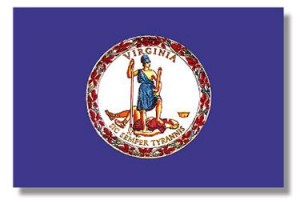
Importance of Well-Pleaded Complaints in False Claims Act litigation
Today we will revisit one of my favorite themes on this blog — the importance of a well-pleaded Complaint in qui tam litigation under the federal False Claims Act. On a related note I am happy to announce that Virginia Beach lawyer David Pearline (who is also a regular reader of this blog) successfully prosecuted a case in the U.S. District Court for the Eastern District of Virginia, and more importantly, he did so on the strength of a very well-pleaded Complaint.
The Continuum of Well-Pleaded Complaints
Certainly, a well-pleaded Complaint is important in any kind of litigation, but in other types of litigation one might get away with a bit less effort. Indeed, in other types of litigation it might even be beneficial to be a bit vague. Take, for example, the forms found in Westlaw’s Federal Civil Judicial Procedure and Rules. In Form 11 we find a sample Complaint for a negligence case:
1. [Statement of federal Jurisdiction]
2. On [date] at [place], the defendant negligently drove a motor vehicle against the plaintiff.
3. As a result, the plaintiff was physically injured, lost wages or income, suffered physical and mental pain and incurred medical expenses of $______.
4. Therefore plaintiff demands judgment against the defendant for $_____ plus costs.
Now that, ladies and gentlemen, is a bare-bones Complaint. I have no doubt that it would get the job done in most motor tort cases, but it will not suffice in a FCA case. In fact, if we think of Complaints as arranged along a continuum, this one is at the extremely simple end and FCA Complaints are at the extremely complicated end. This is partly because the special pleading requirements of Fed. R. Civ. P. 9(b) apply to False Claims Act cases; such a bare-bones Complaint alleging fraud and false claims would be unthinkable under Rule 9(b). But there are other, equally important reasons as well.
The Factual and Legal Complexity of False Claims Act Litigation
By design, Rule 9(b) makes it trickier to prepare a false claims act complaint, but that is only one of several things complicating these cases. Another significant complicating factor is the complexity of governmental operations and government contracts. In addition qui tam/FCA cases will often deal with complex technical topics like healthcare, engineering, accounting, and so forth. And, of course, the broad remedial nature of the federal False Claims Act means that there are many terms left undefined. Generally speaking, statutes like the federal FCA and the Virginia Fraud Against Taxpayers Act make seven different types of conduct illegal in relation to government funds, and the ways those broadly-defined types of conduct can be applied to government operations are many and they are varied.
So, it is easy to see how very good lawyers — indeed, some of the very best — sometimes fail to put together a well-pleaded Complaint.
The Complaint is United States ex rel. Greene v. City of Hampton is a Model of Clarity and Efficiency
So I was happy to see regular reader David Pearline not only successfully prosecute a case, but also put together an excellent Complaint. It also happens to be a case filed in the U.S. District Court for the Eastern District of Virginia, against the City of Hampton for making false claims to the United States Postal Service.
So what makes this such an excellent Complaint?
For starters, David drafted the numbered allegations as short “factlets” which clearly and unequivocally tell the story. He then arranged those factlets in a coherent, logical way so that the reader doesn’t have to work too hard to understand what is being alleged. He also avoided the use of adjectives and adverbs, which as regular readers know, is disfavored in pleadings.
Because of all of these things, the government intervened in the case; moreover, the case settled on the strength of this well-drafted Complaint and Ms. Greene obtained a 17% relator’s share…
So congratulations David, and good work! I always encourage my readers to not only take an interest in and prosecute these cases, but also to share with my their results…hopefully more will come in the future!